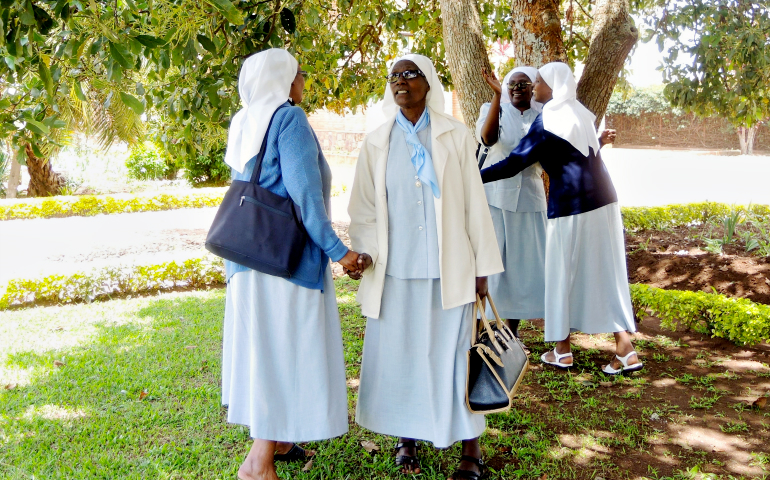
Like nuns everywhere, the Benebikira Sisters, the oldest indigenous congregation in Rwanda, have sisters who are teachers, nurses, pharmacists, formators and administrators. But they also have religious with a unique title: Sister Listeners.
"The genocide created many problems, some people don't want to live because of what happened," said Sr. Marie Venantie Nyirabaganwa, the general superior of the Benebikira Sisters and the head of Association des Supérieurs Majeurs du Rwanda, the national umbrella group for men and women religious.
The 1994 Rwandan genocide, when up to a million people were killed during 100 days of fighting and in the chaos before and afterward, lurks under the surface of every interaction, even though 23 years have passed since the killers laid down their machetes.
The country has successfully emerged from some of the physical devastation after the genocide, the economy growing at impressive rates. Skyscrapers reach towards the heavens in the capital of Kigali and well-paved roads crisscross most of the countryside.
Now the country is perched in a delicate balance, as the people try to honor the memory of those killed while firmly looking toward the future. This balancing act comes into focus each year on April 7, the anniversary of the day the genocide started. It marks the beginning of a three-month period when the country turns inward to remember.




